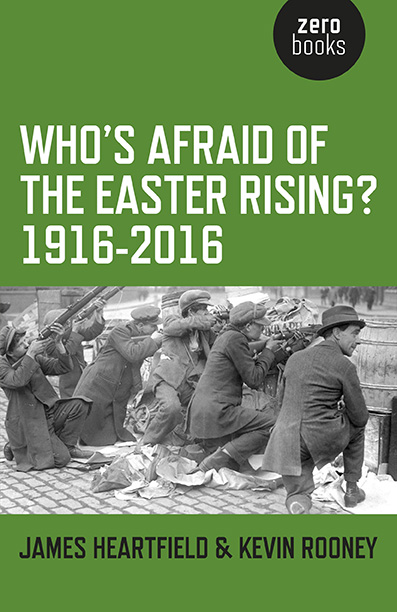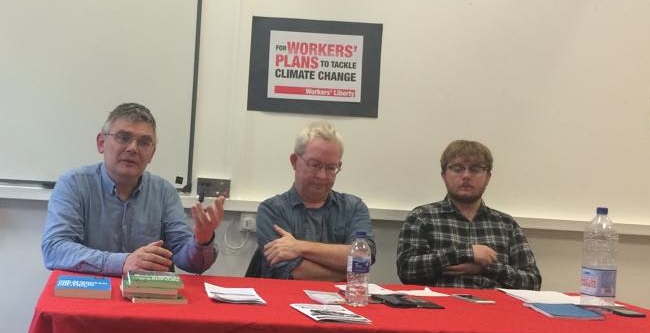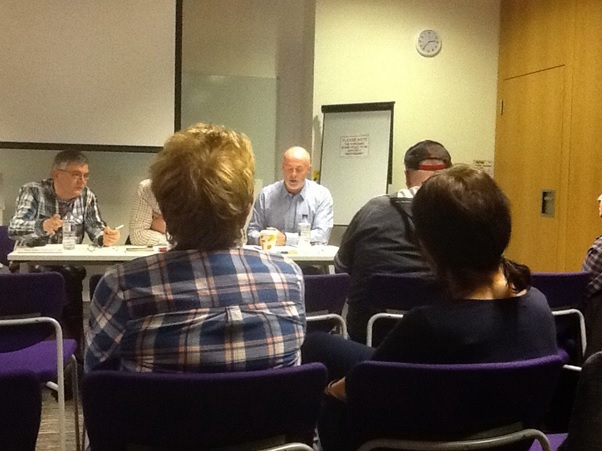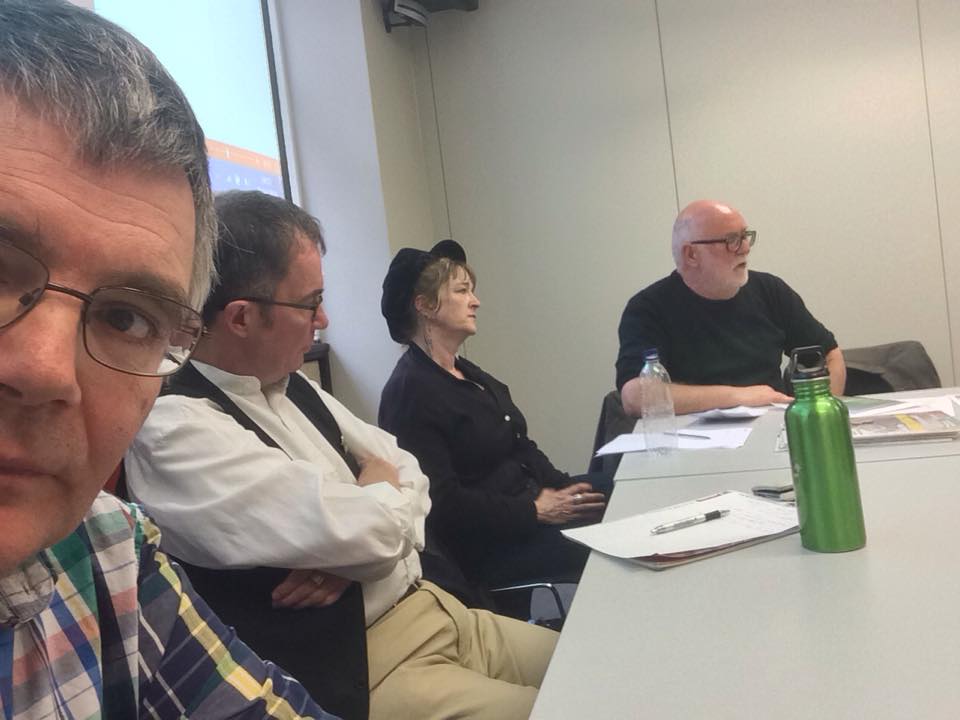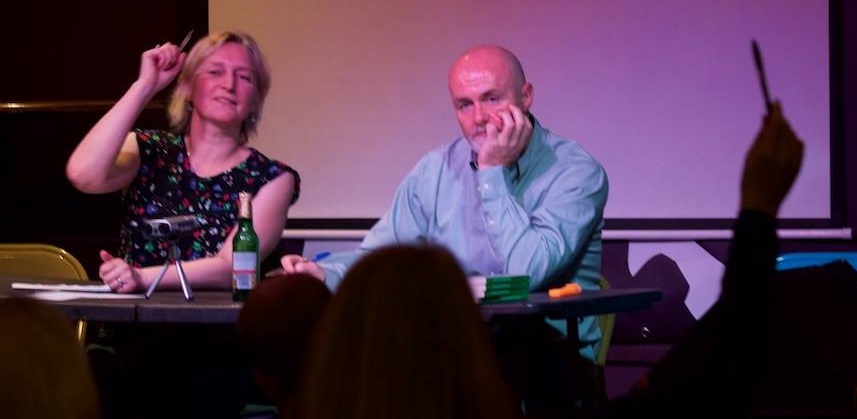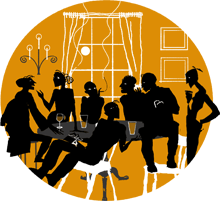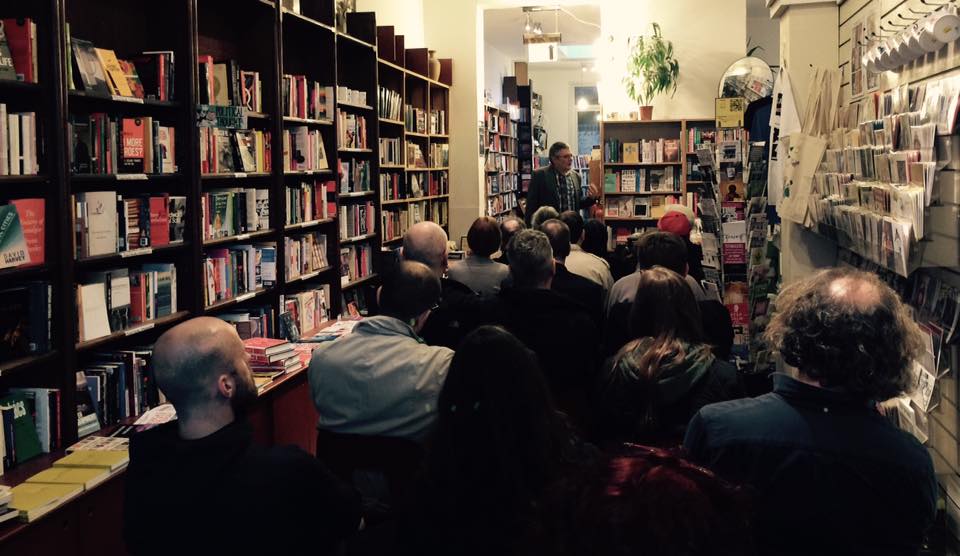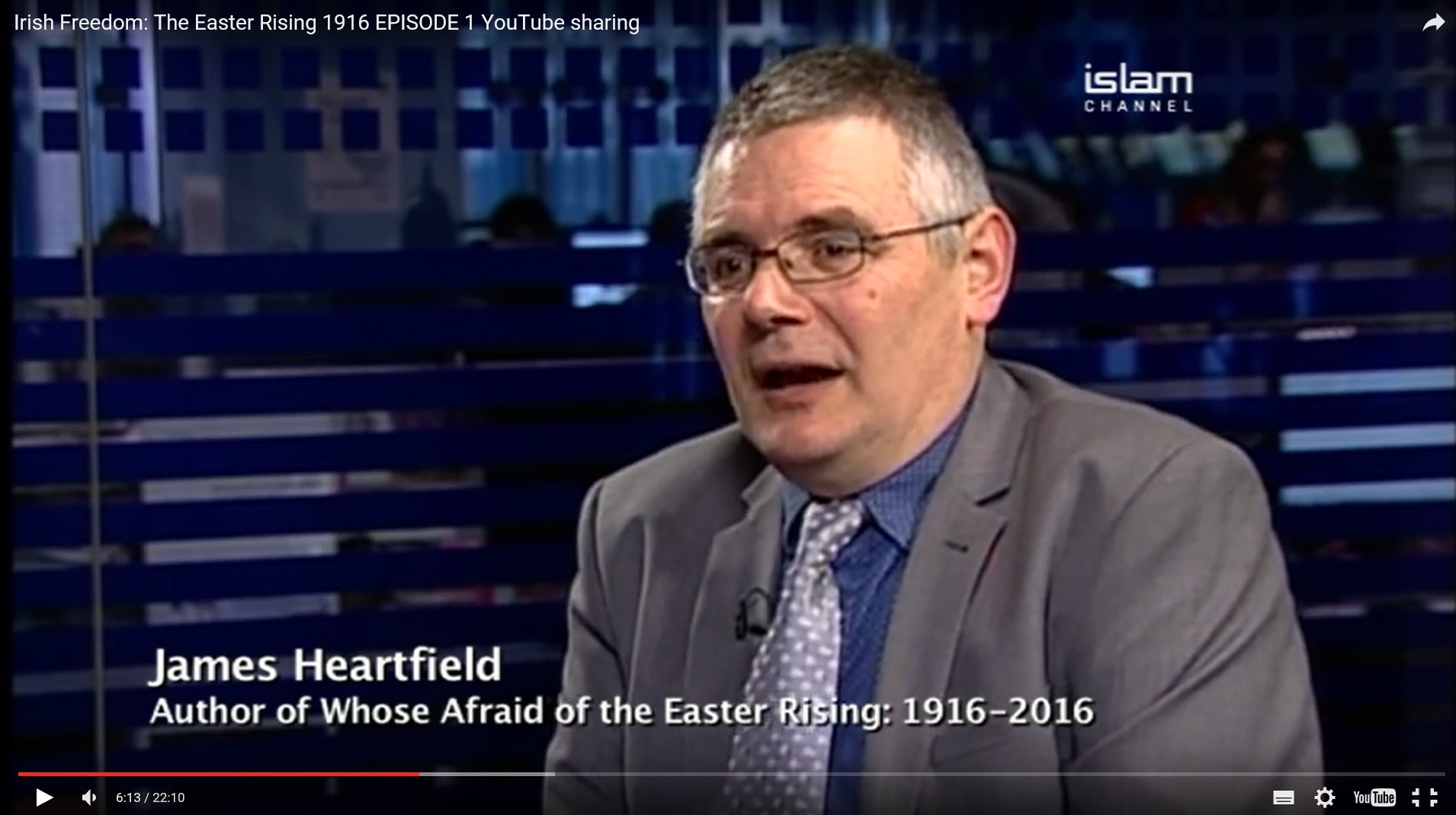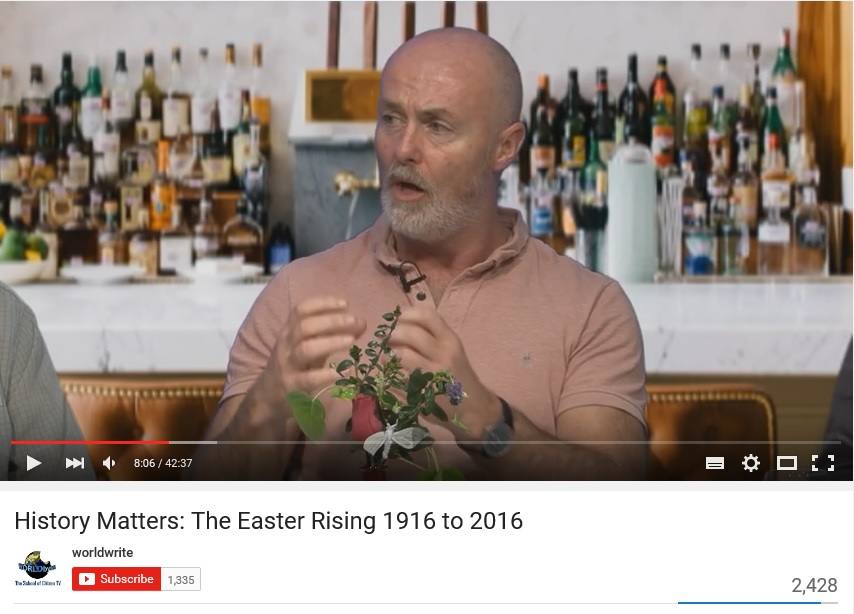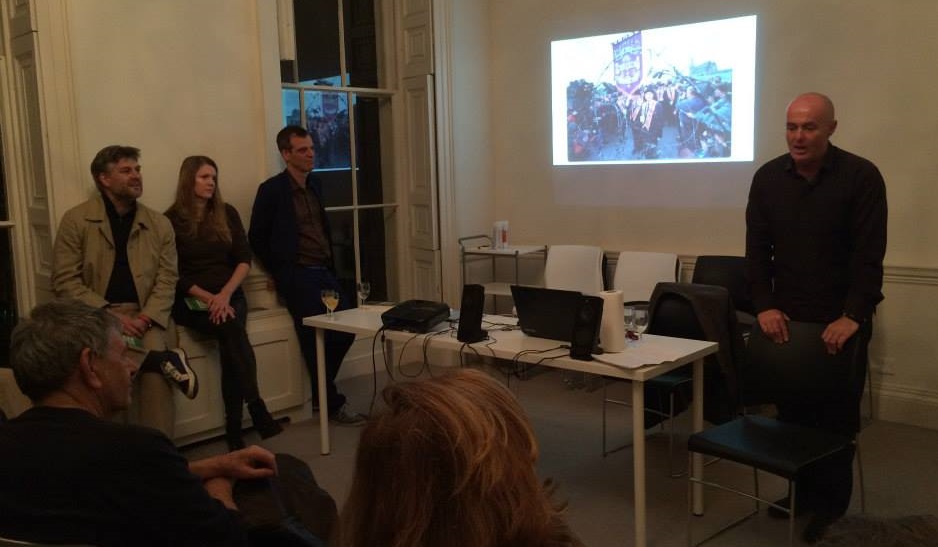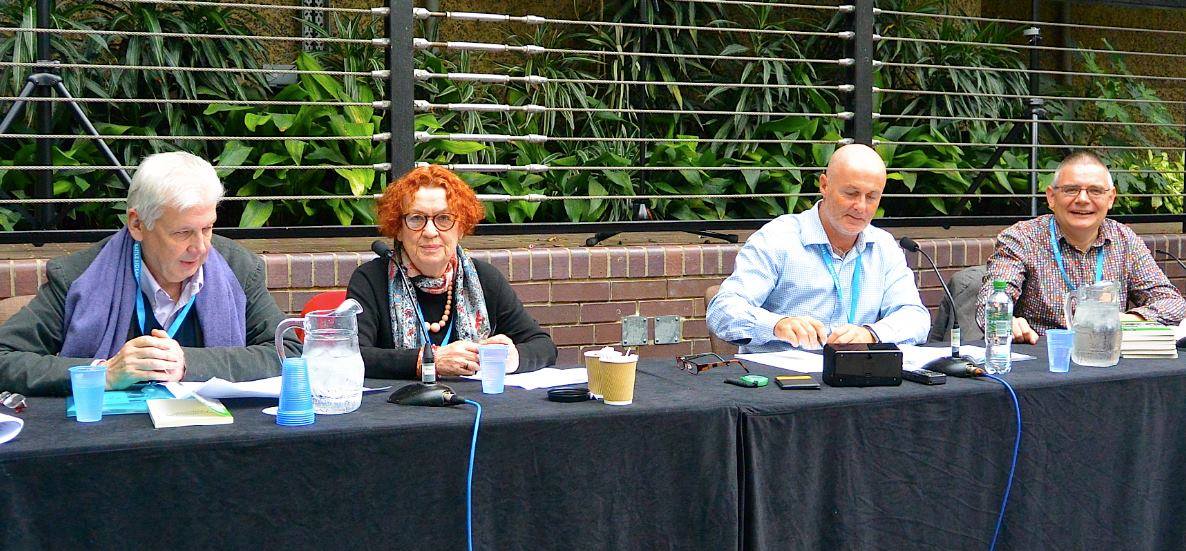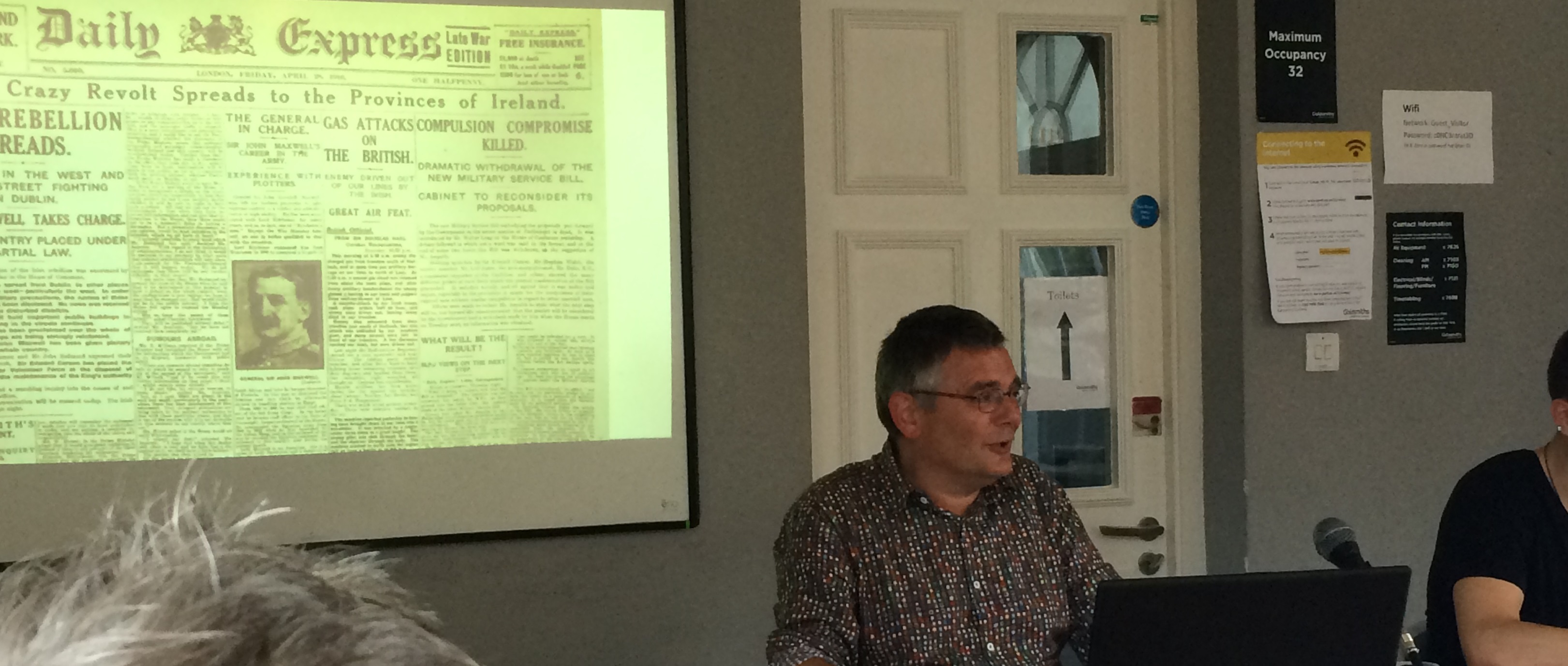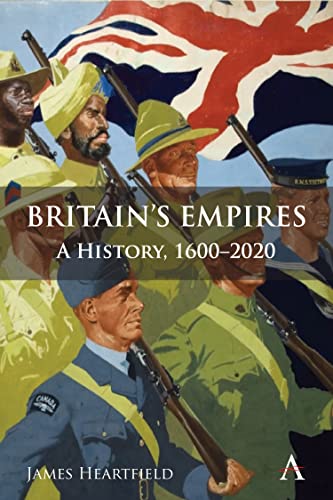 Britain's
Empires: A History - 1600-2020,
Britain's
Empires: A History - 1600-2020,
Anthem Press, 2022, ISBN: 978-1839987243
'There are few single volume histories of the British Empire that match this book’s temporal and geographical span. Well illustrated and balanced across political, economic and cultural approaches, it serves as an excellent overview of a vast, dynamic and enduring phenomenon that reconfigured Britain and the world' — Professor Alan Lester, FRHistS, School of Global Studies, University of Sussex, UK.
'Heartfield goes beyond the teleological,
moralistic and one-size-fits-all approach to the understanding of
history that has become so common in contemporary debates about the
past. This book takes history and human agency seriously, revealing the
complexities, contradictions and competing motives of the different
periods of Britain’s Empire, thus bringing forth new insights. This
makes for a knowledge-rich, refreshing and challenging read" — Inaya
Folarin Iman.
"James Heartfield is without a doubt one of
Britain's most original and insightful living historians. His skill in
tracing the roots of Britain's imperial history and relating it to wider
debates in social science is wonderfully displayed in this book. Read it
and be prepared to have your thinking challenged' — Philip Cunliffe,
Associate Professor in International Relations, University College
London.
'This excellent text offers a deft
periodisation; vivid illustrations of key processes and moments of the
different times and places of British empire and its discontents;
illuminating interconnections between change in Britain and global
change; a rich use of contemporary sources; and the author’s nuanced
judgements' —Henry Bernstein, Professor Emeritus of Development Studies,
SOAS, University of London.
'In this wide-ranging and fascinating book,
James Heartfield takes a critical approach to the past, observing the
many changes and continuities in Britain’s imperial relationships and
shedding light on the various economic, political, and ideological
factors that drove those changes. Anyone seeking to understand the
(uneven) development of British colonialism over the course of more than
four centuries, should read this book'— Dr Cheryl Hudson, Lecturer in
U.S. Political History, University of Liverpool.
Amazon UK
Amazon US
Booktopia AUS
Amazon India
The British and Foreign Anti-Slavery Society: a History
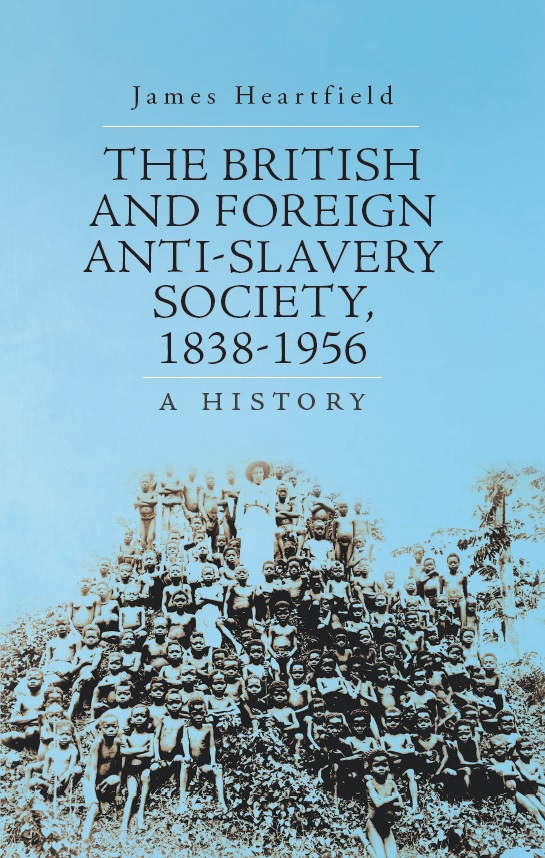
Amazon UK
‘an excellent book which narrates for the first time, and in fine-grain detail, the works, ideals, tensions and shifts of the Anti-Slavery Society. Enthusiastically recommended.’ — Robbie Shilliam, Reader in International Relations, Queen Mary University of London
‘Heartfield’s important and meticulously-documented account shows clearly how the intertwining of ideals and interests in the original abolitionist movement produced the convergence of liberal anti-slavery and British imperialism in the following century.’ — Nicholas Draper, University College London
‘A very readable book by an accomplished author who handles narrative, argument and analysis with admirable clarity. The work of the Society and the zeitgeist which powered it is a remarkable story and Heartfield’s is a significant contribution to our understanding of an important strand of British social and intellectual history.’ — Richard Rathbone, emeritus professor and professorial research associate at SOAS, London; co-author of African History: A Very Short Introduction
‘The most comprehensive history yet of an organisation that laid foundations for Britain’s philanthropic interventions overseas. Heartfield enables us to see how antislavery activists saw themselves reforming the world, while also hinting at their often unintended effects. This is a vital resource for anyone grappling with the complicated legacies of Britain’s Empire.’ — Alan Lester, Professor of Historical Geography, University of Sussex
Dorothy Smith in Africa Today writes that the 'book can benefit general readers interested in the study of the African slave trade, as well as researchers and students.'
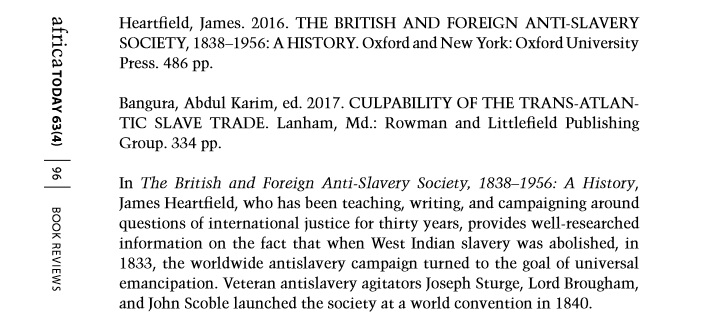
Tabea Dilling writes the following review in Immigration, Asylum and Nationality Law:
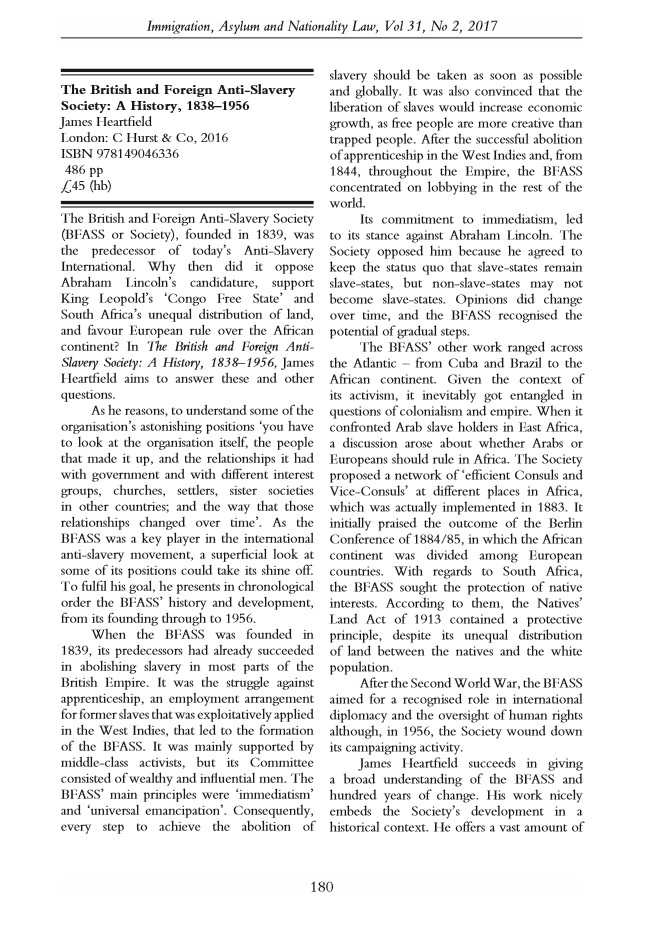
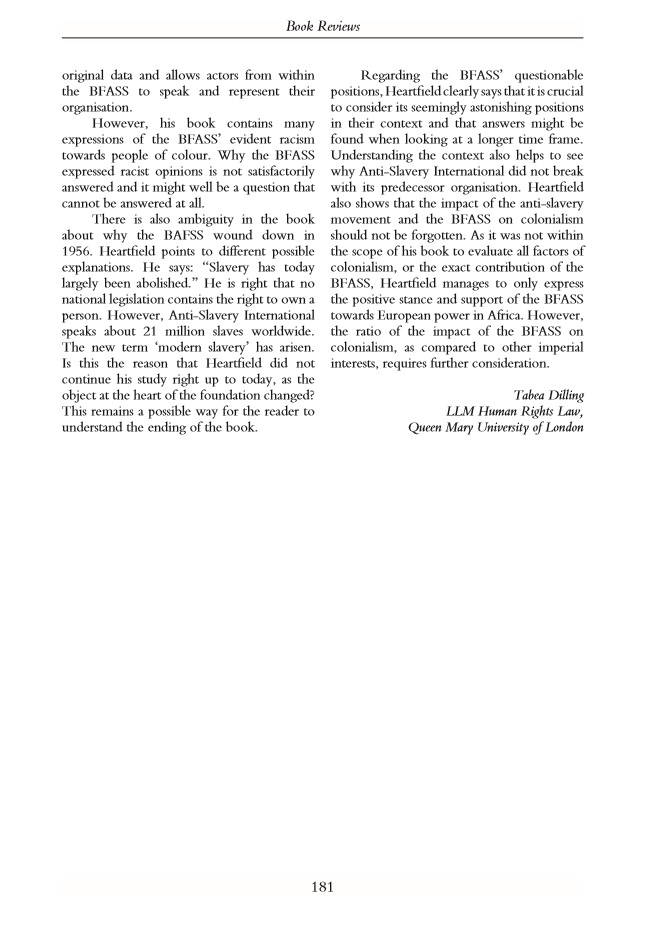
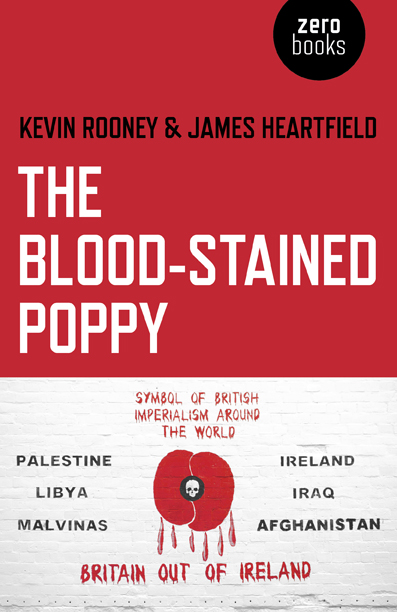 The
Blood-Stained Poppy,
The
Blood-Stained Poppy, by James Heartfield and Kevin Rooney
Zer0 Books, 2019,
£12.99, by Paypal
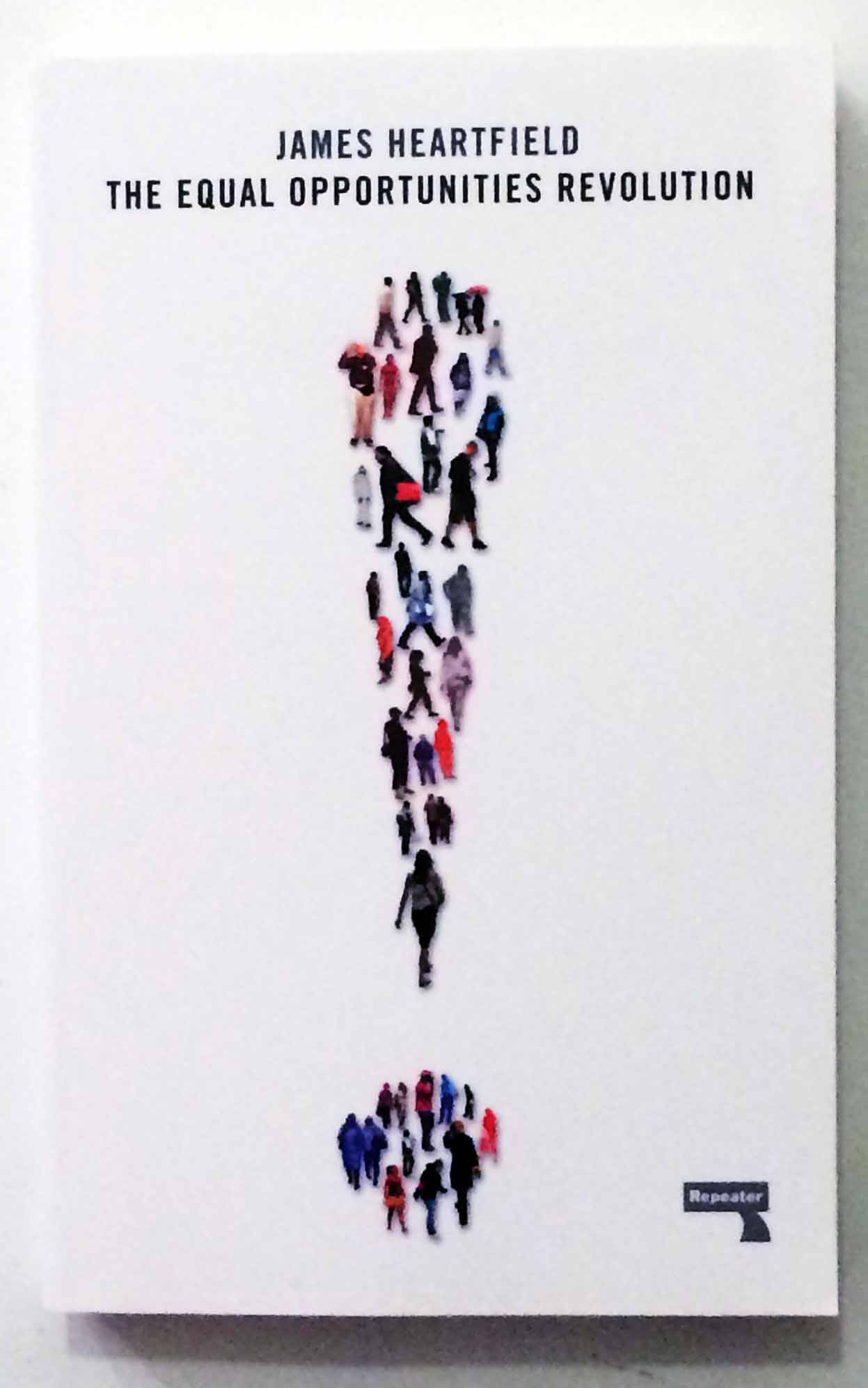 Equal
Opportunities Revolution
Equal
Opportunities Revolution
'a vital read for anyone trying to get to
grips with the nature of the fundamental social changes in the UK'
Joanna Williams.
The Equal Opportunities Revolution explains why bosses took equal
opportunities on board just as they were tearing up union rights at
work. It asks why greater rights led to greater inequality, and why
advances in race and sex equality ran alongside social inequality. It
shows how the equal opportunities revolution became the general model
for workplace relations in the decades that followed, and how it did not
challenge, but rather perfected the liberalisation of labour law. The
right won the economic war, the left won the culture war - and this book
explains how.
On Amazon
UK,
US
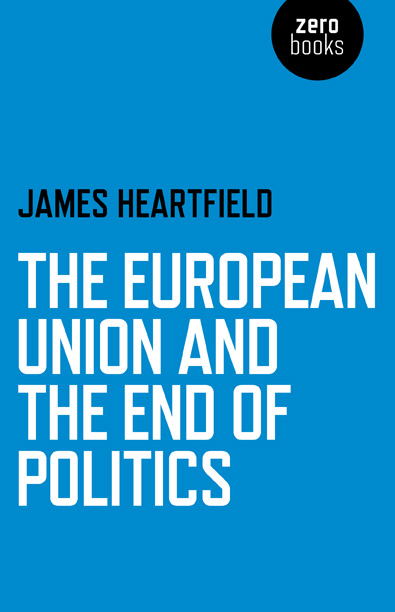 The
European Union and the End of Politics
The
European Union and the End of Politics
'James Heartfield’s groundbreaking new book' Daniel Ben-Ami
Amazon UK
Hardback ISBN: 9781849041201 £25.00 (UK) $45 (US)
'a major, well-written, and closely research contribution to the study of nineteenth century British colonialism' Geographical, Nov 2011
'James Heartfield has grasped the nettle to give us a cogent, elegantly written overview of the society and its history to 1909', Journal of Pacific History, Dec 2012
'a compelling book, rich in historical detail', Aboriginal History Vol 36, 2012
'Heartfield's book is set to become a foundational text', according to Settler Colonial Studies
Douglas Lorimer in Victorian Studies Volume 56, Number 3, Spring 2014
Caroline Shaw in The Journal of Human Rights 06 Jan 2015
Critical Muslim, March 2013
Order it from Hurst Books or from Columbia University Press.
Also available from: Amazon UK Amazon US Borders Aus Amazon CA
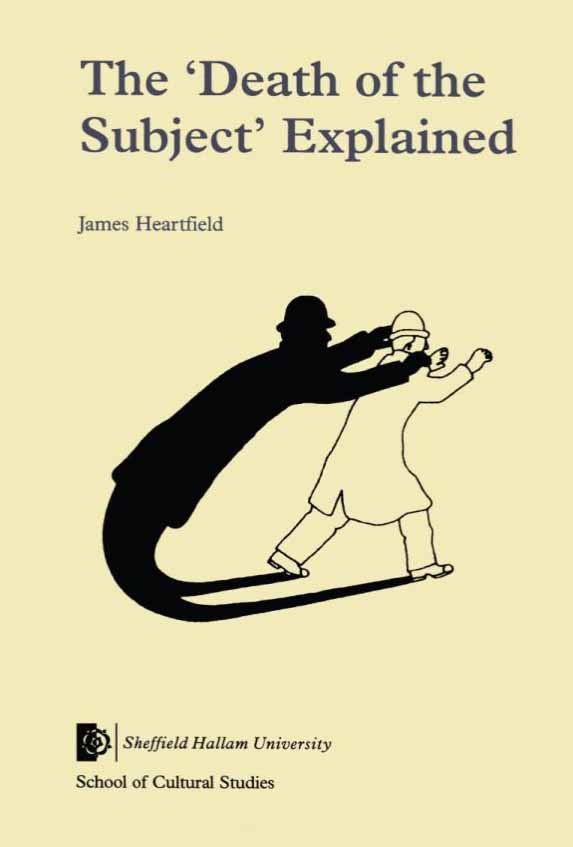 The
'Death of the Subject' Explained
The
'Death of the Subject' Explained
'Those trying to get an intellectual
handle on our dumbed-down society could start with James Heartfield's
The
'Death of the Subject' Explained'
New Statesman
Read
'Postmodernism and the Subject', from the Chapter One,
and Chapter 6,
'Algeria and the Defeat of French Humanism'
'This absolutely fascinating book', Raymond Tallis
'Striking and original', Terry Eagleton
Review in Spiked-online
Amazon UK
An Unpatriotic History of the Second World War
'A book that I would nominate for Isaac Deutscher Prize of 2013' Louis Proyect
'Strong stuff, and in sharp contrast with today’s best-selling histories', Patrick West
'Excellent', Pat Mills
'highly recommended as a useful corrective to World War Two history' Socialist Standard
'a trenchant and sustained demolition of the People’s War mythology' Neil Davenport, Sp!ked
'a compelling and fascinating analysis, demolishing conventional accounts of the War' Anti-Capitalist Initiative
Available now from Amazon UK Amazon US ZER0 Books
Watch James Heartfield talking on the history of the war
Related articles:
World War as Class War by James Heartfield, for Mute. Another copy. In Spanish: La Guerra Mondial como Guerra des clases
'The Battle of the Books', at Spiked-online
 Let's Build!
Let's Build!Why we need five million homes in the next 10 years
is published by Audacity on 23 September 2006
Amazon UK
Articles on Let's Build
Gordon Brown's Eco Towns Con Spiked, 7 April '08
Farewell to the City a paper to the Rural Futures Conference, published in Spiked 4 April 2006...also available in Italian
Interdependent we stand, divided we fall,
'Herbert Girardet and the plastic concept of sustainability' in Rising East online, January 2006
'Londonostalgia', Blueprint, September 2004.
Who's afraid of the Thames Gateway?
Spiked 6 January 2006
City, suburbs and snobs
Spiked 30 November 2005
The government must stop finding reasons not to build new homes Guardian 21 February 2005
Confusing signals in the housing debate and New communities, same old problems, Times Educational Supplement, 14 January 2005
All talk and no bricks, Spiked, 26 January 2005
Concrete over the Countryside, Blueprint, January 2002
Gordon Brown at NESTA for Mute and Spiked;
Creative London for Rising East Online;Escape the Creative Ghetto, with Chris Powell at NESTA;
Cox Report: creative accounting for Spiked;
Quoted in Larry Elliott's Better design requires better Products in the Guardian;
'Winning the European Capital of Culture bid will not re-build Liverpool's industry' Liverpool Daily Post; Chris Smith's Creative Accounting for the Guardian
A polemic against 'Green Capitalism'. James Heartfield accuses the 'Green Capitalists' of profiteering over climate change and other environmental scares. Green capitalists like Zac Goldsmith and Al Gore are manufacturing scarcity to boost prices. The technological revolution has removed scarcity from most of our lives, but the green capitalists are trying to re-invent it. Chapters on 1. The age of plenty, 2. The retreat from production, 3. The green capitalists, 4. Manufactured scarcity, 5. Green consumerism, 6. The economy of wasting time, 7. Green imperialism, 8. Environmental economics, 9. Green socialism?, 10. The unnatural limits to growth, plus an appendix, The revolution in technique. Bibliography and index. 136 pp.
Amazon UK
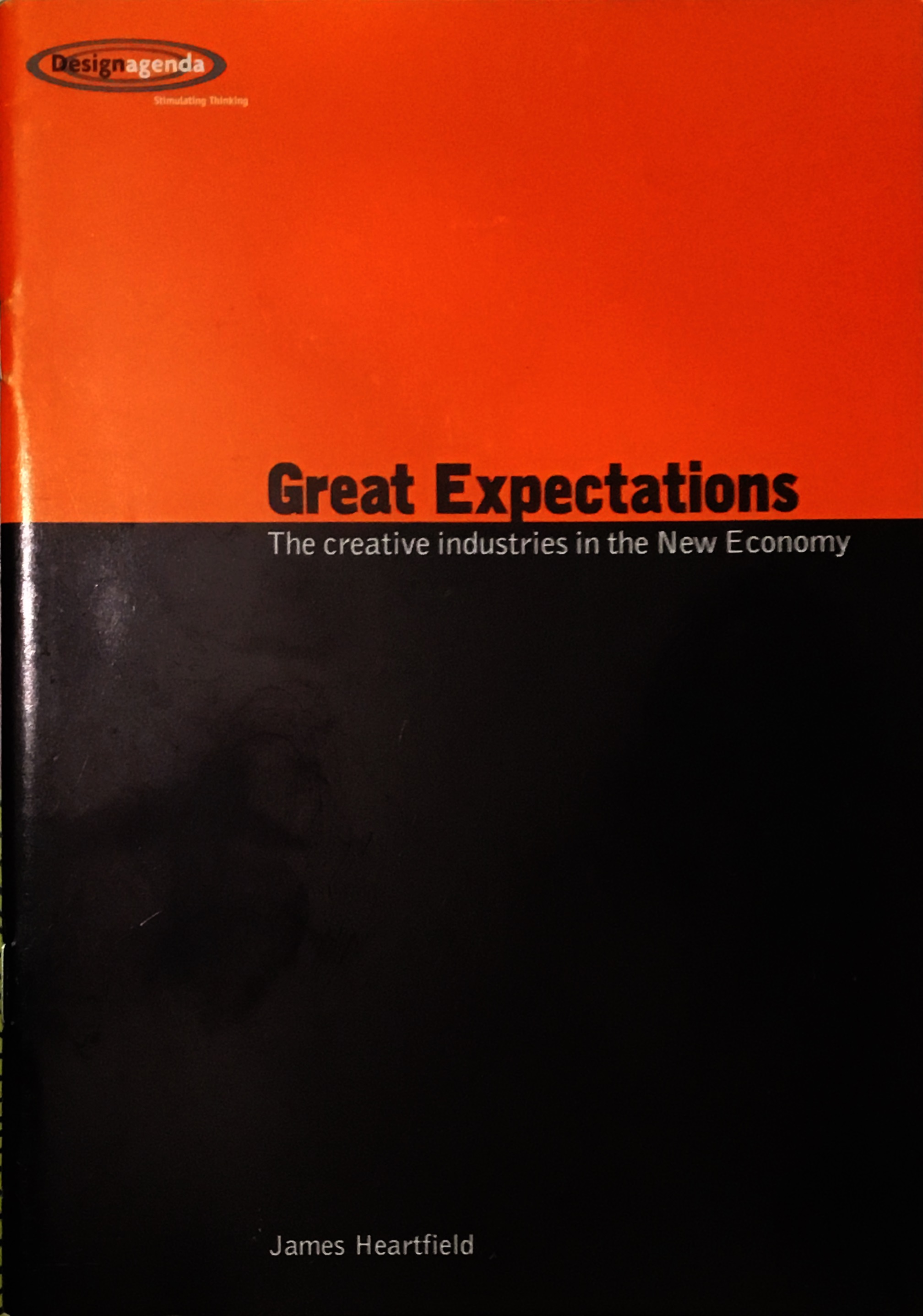 Great
Expectations
Great
ExpectationsAmazon UK
'In this thought-provoking paper, Heartfield attempts to lay bare the facts about the changing perception of design and the arts in Britain today. He develops the idea that there has been a shift in the national psyche, elevating artists and designers to almost mythological status -- heights they often cannot live up to. According to Heartfield, the way in which the art world has responded to these "great expectations" has been varied: examples range from Tate Modern, which has captured the public imagination, to the much derided Millennium Dome. However, he conveys a darker side to this "style revolution", in that "the public's fascination with creative work... has come about because of the lack of reward in conventional work". A balanced, refreshing account in a social climate of "Cool Britannia" and Tory xenophobia.'
The New Statesman, September 11, 2000
|
|
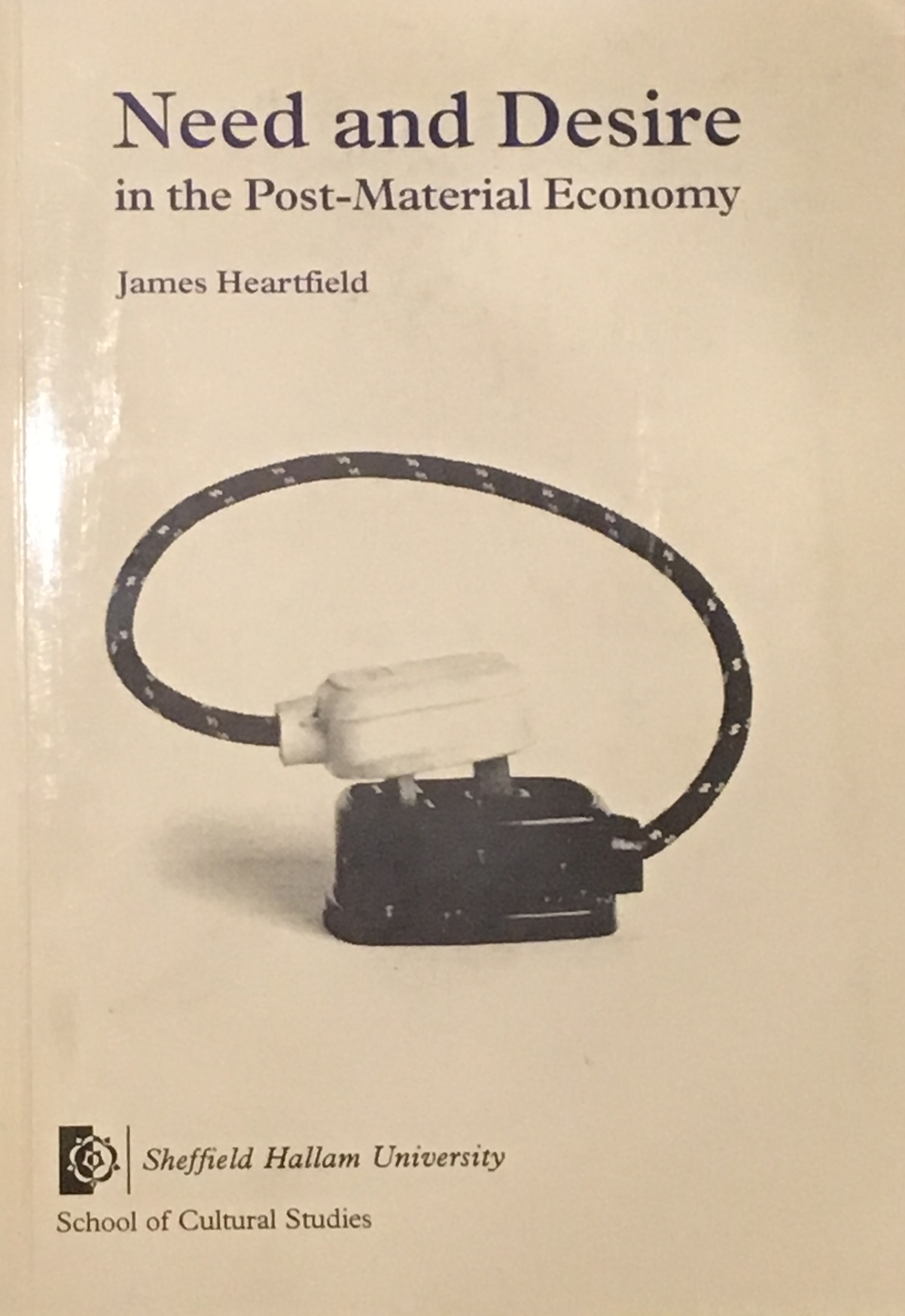 Need
and Desire in the Post-Material Economy
Need
and Desire in the Post-Material Economy
81pp, ISBN 08639 790 5
'An excellent and timely intervention,'
Terry Eagleton
Amazon UK
' James Heartfield suggests that the
'post-material' economy is a self-serving concept and that modern
economic thought masks the decline in western European economies .
After the collapse of industry, we have a "consumer economy", which is
merely non-productive. This attitude emerged as disputes over
production have become less relevant (the unions have been squashed),
while the anti-Marxist "politics of desire" is built on the
exploitative surplus: the real social issues are avoided. The
consumption of workers is limited to their basic needs, and the rich
still luxuriate in their surplus value. '
New Statesman,
24 July 1998
'It's a fine little booklet. Even when I
disagree with James, I always admire his intelligence & clarity, and
Need & Desire is no exception to his usual standard.'
Doug Henwood, author
Wall Street
'Essential reading for anyone
with an interest in today's culture'
The Cherwell, 16 October 1998
'In
Need and Desire in the Post-Material Economy James Heartfield
delivers a brutal exposure of the post-material society or "creative
economy"'
Peter Ray, LM, November 1998
'A trenchant, lucid and much-needed
critique of the myths of identity politics and the "consumer
society".' Kenan Malik, author
The Meaning of Race
'At a time when mainstream theorists from
Derrida to Butler have used Bataille's notion of "general economy" to
religitimate in a "new" rhetoric the existing social order, James
Heartfield makes a rigourous argument for a runderstanding of
"production" and " consumption" and for a clear distintion between
"need" and "desire". For a social justice based of an equitable access
to material resources, Heartfield argues that these terms must be
clearly distinguished.'
Donald Morton, editor
The Material Queer
'James Heartfield argues that
post-materialism has gained ground as a result of low rates of
industrial growth.'
Investment Advisor,
9 November 1998
'Through his materialistic glasses, social
theorist James Heartfield puts the post-materialists in their place'.
Varsity,
30 October, 1998
